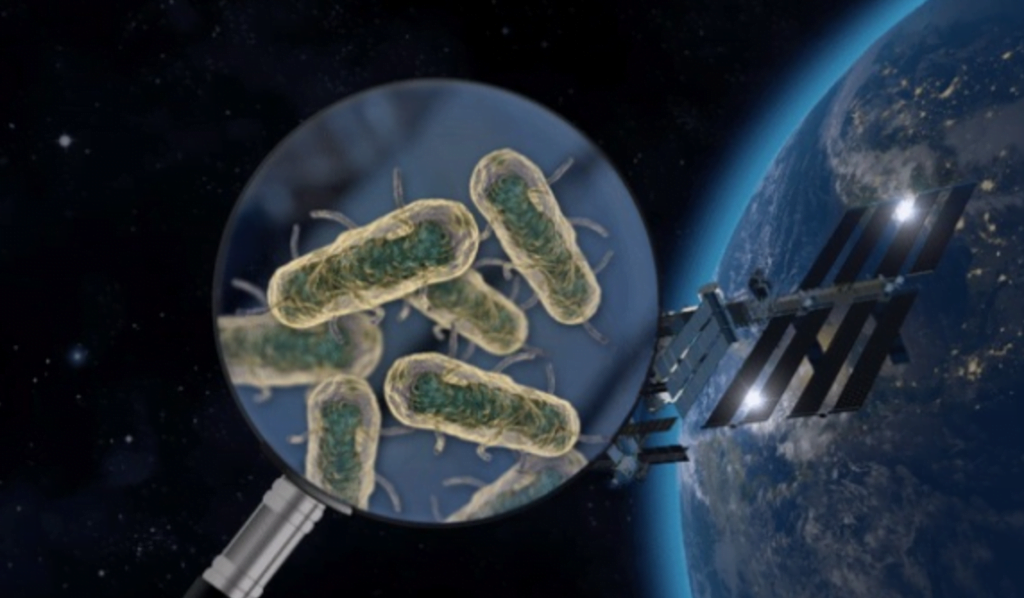The survival of some microorganisms exposed to outer space has been studied using both simulated facilities and low Earth orbit exposures. Bacteria were some of the first organisms investigated, when in 1960 a Russian satellite carried Escherichia coli, Staphylococcus and Enterobacter aerogenes into orbit.
Year: 2020
WE MAY HAVE FOUND THE FIRST-EVER TRACE OF PROTEIN FROM OUTER SPACE IN AN OLD METEORITE
A team of scientists believes they have discovered the first extraterrestrial protein known to humanity. Using a new analysis technique, the researchers claim to have found the out-of-this-world discovery inside a meteorite that fell to Earth some 30 years ago.
URANUS IS LEAKING ITS ATMOSPHERE INTO SPACE, NASA DATA SHOWS
After revisiting decades-old data from the Voyager 2 flyby in Jan 1986, NASA scientists have found a shocking discovery. The analysis has revealed a “zigzag” in the magnetic data, just lasting one minute in the Voyager 2’s 45-hour flyby. The zigzag was previously not detected as the data was not analyzed in detail, and just looked at as an overview. Scientists believe that the zigzag represents a plasmoid, a type of structure that was not well understood in 1986.
SCIENTISTS FIND A SUPERCONDUCTOR IN BITS OF METEORITE
The discovery is just the latest to show that meteorites are much more than space debris that falls out of the sky. Recent investigations have turned up meteorite-borne deliveries of possible extraterrestrial proteins, minerals and materials older than the Solar System itself. But we have never seen anything quite like this before.
SATELLITE DATA SHOWS THAT GREENLAND LOST 600 BILLION TONS OF ICE
Greenland is considered “ground zero” for climate change. Greenland went through an exceptionally warm season with record-breaking temperatures. This led to the loss of 600 billion tons of ice, which is enough to raise global sea levels 2.2 millimetres in two months.
HOW DID THE MOON FORM?
Our Moon is a jewel in our night sky. The night sky just wouldn’t feel right without the Moon. But the Moon wasn’t there all the time. So Where did our natural satellite come from? After the sun spun to light, the planets of the solar system began to form. But it took another hundred… Continue reading HOW DID THE MOON FORM?
WHY STUDY ASTEROIDS?
The scientific interest in asteroids is largely due to their status as the remnant debris from the inner solar system formation process. Because some of these objects can collide with the Earth, asteroids are also important for having significantly modified the Earth’s biosphere in the past. They will continue to do so in the future.… Continue reading WHY STUDY ASTEROIDS?
EVEN STAR SYSTEMS HAVE IDENTITY CRISES
A double star system has been flipping between two alter egos, according to observations with Chandra X-ray Observatory and The Karl G. Jansky Very Large Array(VLA). Using nearly a decade and a half worth of Chandra data, researchers noticed that a stellar duo behaved like one type of object before switching its identity… Continue reading EVEN STAR SYSTEMS HAVE IDENTITY CRISES
A DARK COSMIC WEB THAT TIES THE UNIVERSE TOGETHER
After counting all the normal, luminous matter in the obvious places of the universe (galaxies, clusters of galaxies and the intergalactic medium) about half of it is still missing. So not only is 85% of the matter in the universe made up of an unknown, invisible substance dubbed dark matter, we can’t even find… Continue reading A DARK COSMIC WEB THAT TIES THE UNIVERSE TOGETHER
LEARN ABOUT THE SECOND BRIGHTEST OBJECT IN THE CONSTELLATION ORION: BETELGEUSE
Betelgeuse is a red supergiant star roughly 700 light-years away from our own Solar System. Betelgeuse is usually the eleventh-brightest star in the night sky. After Rigel, the second brightest object in the constellation Orion, the rust-coloured star has attracted attention from astronomers for its relative closeness and potential for collapsing in a spectacular supernova event within the… Continue reading LEARN ABOUT THE SECOND BRIGHTEST OBJECT IN THE CONSTELLATION ORION: BETELGEUSE
STUDY OF MUONS PARTICLE COULD CHANGE SCIENCE AS WE KNOW IT
You may never have heard of muons before, but these particles are crucial to our understanding of the universe. In a milestone study published in the journal Nature, researchers announced that they have overcome one of the biggest challenges to studying these fundamental particles. The study heralds a new era of research into the properties… Continue reading STUDY OF MUONS PARTICLE COULD CHANGE SCIENCE AS WE KNOW IT
WHAT IS NASA’S ARTEMIS PROGRAM?
Through the Artemis lunar exploration program. NASA is committed to landing astronauts, including the first woman and the next man, on the Moon by 2024. NASA will use innovative new technologies and systems to explore more of the Moon than ever before. NASA will collaborate with commercial and international Space Agency to establish sustainable missions… Continue reading WHAT IS NASA’S ARTEMIS PROGRAM?
10 SCIENTIFIC INSTRUMENTS ON BOARD THE SOLAR ORBITER TO TRANSFORM OUR UNDERSTANDING OF THE SUN
NASA-ESA Solar Orbiter is set to launch into space on Sunday, February, 9, 2020 at 11:03 p.m Eastern. And it packs ten powerful scientific instruments on board that will shed unprecedented light on our Sun. The mission is an ambitious collaboration between the European Space Agency and NASA. It aims to resolve some of… Continue reading 10 SCIENTIFIC INSTRUMENTS ON BOARD THE SOLAR ORBITER TO TRANSFORM OUR UNDERSTANDING OF THE SUN
